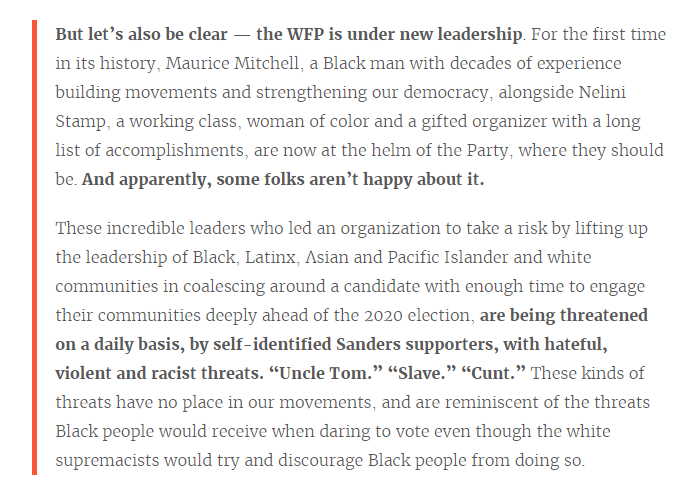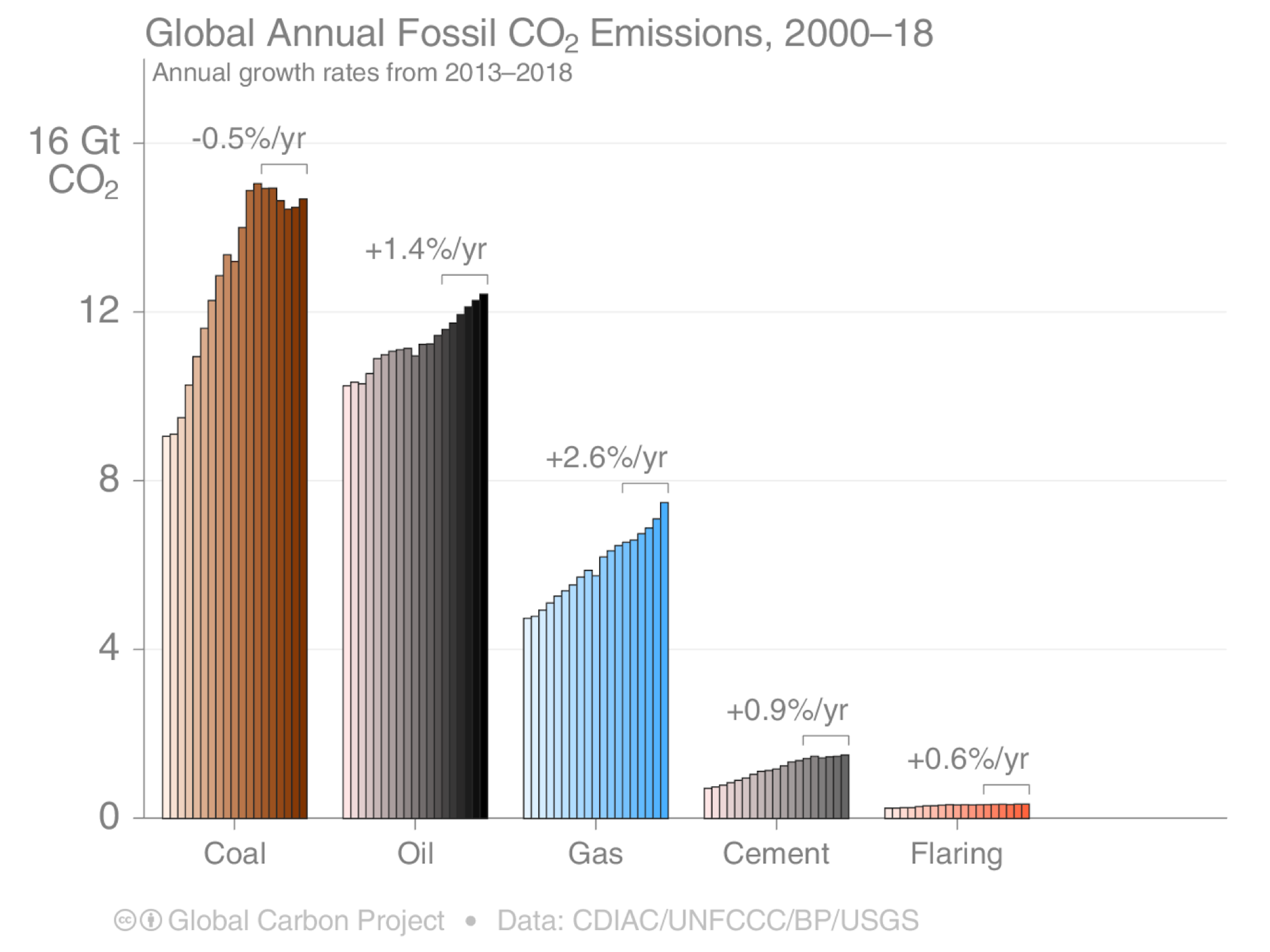Celerity
Celerity's JournalI am going to vote for Pete in our CA primary, but I am going back to undecided here on DU and I am
leaving the Primary section. It is simply too toxic, I am being alert stalked and harassed by some of the leading candidates's supporters (hint, not Warren people) and it just isn't healthy for me mentally anymore. I am a tremendously upbeat and dynamic person in real life, but more and more I feel a darkness coming over my countenance and inner core when I log in and start to interact in the Dem Primaries section here.
I am mentally and emotionally exhausted from having to try and attempt to correct the myriad number of spun up false attacks on Buttigieg, very often by accounts that so appear to be simply burner sock puppets, as well as the ultra dodgy, Dem-bashing far left press and their rotters in Tweetland, other social media, and various shitty little corners of the net. It boggles my mind that some of these sites and POS Twitter trolls are allowed to be posted here with impunity. A special big FUCK YOU to TYT btw. What an absolute poisoned chalice of disnfo and divide et impera bollocks that utter bawbag of a site is.
Anyway, with that I leave you all to fight the good fight and GO PETE!!!!
cheers,
Cel

More that was left out of Buttigieg's response about deficits
Mayor Pete expanded on this in the gaggle: “I believe every Presidency of my lifetime has been an example of deficits growing under Republican government and shrinking under Democratic government, but ... my party’s got to get more comfortable talking about this issue” “And we shouldn't be afraid to demonstrate that we have the revenue to cover every cost that we incur in the investments that we’re proposing.”
https://twitter.com/lizcgoodwin/status/1202698158117179393
https://twitter.com/lizcgoodwin/status/1202754855749730309
Buttigieg campaign estimates about 1050 people for Mayor Pete's Exeter townhall right now
"If you’d rather have a private plan that’s fine by me as long as you’re covered one way or another," Buttigieg says to applause here
South Bend African American Leaders Praise Buttigieg Amid Protests
https://www.wbaa.org/post/south-bend-african-american-leaders-praise-buttigieg-amid-protestsAn event to show support for presidential candidate and South Bend Mayor Pete Buttigieg Wednesday night verged on chaos at moments as a handful of protesters disrupted speakers. The South Bend event was held for local African-American leaders to talk about their experiences with the candidate.
“Well there are plenty of people in the community that do support Mayor Pete and we need to change that dialogue,” she says.
But while they spoke, protesters holding signs shouted and interrupted with anti-Buttigieg messages. One protester, Igor Rodriguez, even stopped the event when he grabbed the microphone and began chanting “This is a farce.” “Who chose these people as the black leaders?" he yelled in the microphone. "Who organized this? We have a police [problem] in this town! Why are we talking about Pete Buttigieg?”
snip
and for all the people getting the vapours over reporters and the Buttigieg campaign saying that some of the protesters were Sanders supporters
well
https://twitter.com/MaxLewisTV/status/1202422061261557760
Black Leaders Rip Attacks From Sanders Supporters In Letter
https://splinternews.com/black-leaders-condemn-attacks-by-sanders-supporters-ami-1838259737In a draft letter obtained by Splinter on Thursday, dozens of prominent black progressive leaders condemned the “hateful, violent, and racist threats” they said have been leveled by “self-identified [Bernie] Sanders supporters” against black leaders in the wake of the Working Families Party’s endorsement of Elizabeth Warren for president.
One of the letter’s signatories, Black Lives Matter co-founder Patrisse Cullors, said in an email that the version of the letter obtained by Splinter was not final.
“The WFP made a decision, with its members and supporters and staff, and there is now conflict over the substance of that decision,” the letter reads in part.
It continues (emphasis mine throughout):

snip
No I did not alter the Google pull HL

Sanders defends Trump voters: I don't think they're racists, sexists or homophobes
https://thehill.com/blogs/blog-briefing-room/news/326820-sanders-defends-trump-voters-i-dont-think-theyre-racistsVermont Sen. Bernie Sanders (I) on Friday defended voters of President Trump, saying that the election was Democrats' to lose and that the party needs to better represent the working-class voters who supported Trump and other GOP lawmakers
"Some people think that the people who voted for Trump are racists and sexists and homophobes and deplorable folks. I don't agree, because I've been there.
Let me tell you something else some of you might not agree with, it wasn't that Donald Trump won the election, it was that the Democratic Party lost the election," Sanders said while speaking at an Our Revolution rally in Boston with fellow Sen. Elizabeth Warren (D-Mass.).
Sanders went on to say that a "fundamental restructuring of the Democratic party" was needed to win future elections and that problems with party's current setup is why many were quick to support Trump in the election, not because of some of the rhetoric on the campaign trail.
"We need a Democratic Party that is not a party of the liberal elite but of the working class of this country, we need a party that is a grassroots party, where candidates are talking to working people not spending their time raising money for the wealthy and the powerful," Sanders said. "And when we do that, when we transform the Democratic Party, we transform America."
snip
older article
BUT

Kelly Loeffler Is Georgia's Next Senator
https://www.gpbnews.org/post/kelly-loeffler-georgia-s-next-senatorGov. Brian Kemp on Wednesday named Atlanta businesswoman Kelly Loeffler as Georgia’s next U.S. Senator as the Republican party in Georgia seeks to maintain control of two Senate seats, the state House and its presidential vote heading into the 2020 election cycle.
Loeffler will be the second-ever woman to represent Georgia in the Senate, and, if she wins a special election next fall, she will be the first Georgia woman elected to the Senate. In her remarks, she acknowledged that it will take work for her become known to voters in Georgia.
“But here’s what folks are gonna find out about me: I’m a lifelong conservative, pro-Second Amendment, pro-military, pro-wall and pro-Trump,” she said. “And I make no apologies for my conservative values, and will proudly support President Trump’s conservative judges.”
It’s been three months since Johnny Isakson announced he would step down from office at the end of 2019 due to health concerns. In that time, Kemp asked for input from interested parties through a public application portal and sought to develop a shortlist of applicants that would reflect his commitment to appointing people of diverse and non-traditional backgrounds to government posts.
snip
Global emissions to hit 36.8 billion tonnes, beating last year's record high
https://theconversation.com/global-emissions-to-hit-36-8-billion-tonnes-beating-last-years-record-high-128113Global emissions for 2019 are predicted to hit 36.8 billion tonnes of carbon dioxide ( CO₂ ), setting yet another all-time record. This disturbing result means emissions have grown by 62% since international climate negotiations began in 1990 to address the problem. The figures are contained in the Global Carbon Project, which today released its 14th Global Carbon Budget.
Digging into the numbers, however, reveals a silver lining. While overall carbon emissions continue to rise, the rate of growth is about two-thirds lower than in the previous two years. Driving this slower growth is an extraordinary decline in coal emissions, particularly in the United States and Europe, and growth in renewable energy globally. A less positive component of this emissions slowdown, however, is that a lower global economic growth has contributed to it. Most concerning yet is the very robust and stable upward trends in emissions from oil and natural gas.
Coal is king, but losing steam
The burning of coal continues to dominate CO₂ emissions and was responsible for 40% of all fossil fuel emissions in 2018, followed by oil (34%) and natural gas (20%). However, coal emissions reached their highest levels in 2012 and have remained slightly lower since then. Emissions have been declining at an annual average of 0.5% over the past five years to 2018.

In 2019, we project a further decline in global coal CO₂ emissions of around 0.9%. This decline is due to large falls of 10% in both the US and the European Union, and weak growth in China (0.8%) and India (2%). The US has announced the closure of more than 500 coal-fired power plants over the past decade, while the UK’s electricity sector has gone from 40% coal-based power in 2012 to 5% in 2018. Whether coal emissions reached a true peak in 2012 or will creep back up will depend largely on the trajectory of coal use in China and India. Despite this uncertainty, the strong upward trend from the past has been broken and is unlikely to return.
snip
Alejandra Agredo, voice for Miami-Dade transit with influential audience, dies at 17
so utterly tragic, suicide by train ![]()
https://www.miamiherald.com/news/local/obituaries/article237935779.html
Alejandra Agredo, whose command of transit policy and wry takes on its failings and potential in Miami-Dade County earned the attention of government and nonprofit leaders, died Nov. 26, her father said Monday. She was 17. A well-known voice among Miami-Dade policy makers and advocacy groups involved in transit, Agredo used her Twitter feed to demand better from the county’s transportation system and showed up at city halls and county meetings to press her case in person.
In October, she launched a new nonprofit, the Miami Riders Alliance, with a stated mission to unite Miami’s bus, train and bike riders in a fight “for safe streets and reliable transit.” For fun, Agredo would take round trips on county buses and Metrorail trains to absorb more details about how Miami-Dade moved people. “She would ride transit to ride transit,” said Kevin Amézaga, also 17 and a fellow founder of the Riders Alliance. “She just liked seeing how the system worked.”
Among Agredo’s side projects were a redesigned county transit pass with a mini rail map she created, and developing open-source software to track all of South Florida’s transit options, including city trolleys , Tri-Rail and Brightline. The early phases of that effort are available at wayline.co, a website she developed. “Wayline will reinvent South Florida commutes,” the site states. “Get out of your car.” “She didn’t want people to be left out of life because they didn’t have access to transit,” Amézaga said. “She really liked the idea of connecting everybody in Miami, because we’re all the same.”
News of Agredo’s death became public Saturday, prompting a string of praise and remembrances from county office holders, community activists and everyday transit riders who became fans of Agredo’s @VirginTrainsMIA Twitter account.
snip
her last Tweet
![]()
https://twitter.com/VirginTrainsMIA/status/1199482255288258560
NYT : How a Divided Left Is Losing the Battle on Abortion
Miscalculations, and an unexpected victory by President Trump, have put abortion access at its most vulnerable point in decades, and the left on the defensive. Now it is trying to recover.https://www.nytimes.com/2019/12/01/us/politics/abortion-planned-parenthood.html
ATLANTA — The pin was small, and rusted on the back. Sharon Wood had packed it away in 1973 as a relic of a battle fought and won: the image of a black coat hanger, slashed out by a red line. Then this spring, her home state, Georgia, joined a cascade of states outlawing abortion at the earliest stages of pregnancy. Ms. Wood did what she never imagined she would need to do again. She dug it out, and pinned it on. “Don’t ask me how it all happened,” Ms. Wood, 70, a retired social worker northeast of Atlanta, said one Sunday afternoon, the pin on her dress. “I know so many people who said they woke up when Trump was elected. Well, they shouldn’t have been asleep.”
For years, abortion rights supporters like Ms. Wood believed the 1973 Roe v. Wade Supreme Court ruling had delivered their ultimate goal, the right to reproductive choice. Now, they are grappling with a new reality: Nationwide access to abortion is more vulnerable than it has been in decades. In a six-month period this year, states across the South and Midwest passed 58 abortion restrictions. Alabama banned the procedure almost entirely. Lawmakers in Ohio introduced a similar bill shortly before Thanksgiving. And in March, the Supreme Court will hear its first major abortion case since President Trump added two conservative justices and shifted the court to the right; how it rules could reshape the constitutional principles governing abortion rights.
For abortion opponents, this moment of ascendancy was years in the making. Set back on their heels when President Barack Obama took office, they started methodically working from the ground up. They focused on delivering state legislatures and gerrymandered districts into Republican control. They passed abortion restrictions in red states and pushed for conservative judges to protect them. And then unexpectedly, and serendipitously, Mr. Trump won the White House. Ending legal abortion appeared within their reach. As Planned Parenthood and its progressive allies have rallied the resistance, the shift in fortunes in the abortion wars has been mostly attributed to the right’s well-executed game plan. Less attention has been paid to the left’s role in its own loss of power.
But interviews with more than 50 reproductive rights leaders, clinic directors, political strategists and activists over the past three months reveal a fragmented movement facing longstanding divisions — cultural, financial and political. Many said that abortion rights advocates and leading reproductive rights groups had made several crucial miscalculations that have put them on the defensive. “It’s really, really complicated and somewhat controversial where the pro-choice movement lost,” said Johanna Schoen, a professor at Rutgers University who has studied the history of abortion. National leaders became overly reliant on the protections granted by a Democratic presidency under Mr. Obama and a relatively balanced Supreme Court, critics say, leading to overconfidence that their goals were not seriously threatened. Their expectation that Mr. Trump would lose led them to forgo battles they now wish they had fought harder, like Judge Merrick B. Garland’s failed nomination to the bench.
snip
Uncharted Territory on Abortion Politics
Abortion rights groups responded to our story, claiming political momentum heading into 2020.
https://www.nytimes.com/2019/12/02/us/politics/on-politics-abortion-2020.html
If you saw “On Politics A.M.” this morning or the front page of Monday’s newspaper, you probably saw our big project taking stock of the abortion rights movement. The story was the culmination of three months of reporting by Elizabeth Dias and me that included a lovely road trip down I-20. Because I cannot seem to stop working with Ms. Dias, I roped her into writing the newsletter with me today. Our central idea: Abortion is like no other issue in American political life, planted at the intersection of health care, culture, science and morality. And, right now, abortion rights are under attack like never before. Democrats say public opinion still sides with abortion rights. They cite recent electoral victories, big fund-raising numbers and the energy of “pussy hat”-wearing protesters.
Yet, over the past year, state after state has passed new restrictions, making it harder to get an abortion in some places than at any point since Roe v. Wade legalized the procedure in 1973. By many indications, the left is losing this fight. The advances of the right have been well documented. So our story focused on recent missteps and miscalculations made by abortion rights groups. But most of the reaction to the story today centered not on the financial and cultural challenges within the movement, but on what everyone is focused on these days: 2020 politics. On Twitter and in our inboxes, national abortion rights organizations argued that we had understated their political strength and popular support heading into a big election year.
The reality is that when it comes to abortion politics, we are moving through uncharted waters. In 2016, Hillary Clinton dispensed with her party’s long-held line that abortion should be “safe, legal and rare.” Donald J. Trump, who once described himself as “very pro-choice,” leveraged Mrs. Clinton’s position to motivate socially conservative voters. Two years later, the confirmation of Justice Brett Kavanaugh to the Supreme Court helped Republicans hold the Senate in the midterm elections. Now, Mr. Trump is seen as one of the most effective anti-abortion presidents in history, with social conservatives firmly in his camp. Over the same period, Democrats used support for abortion rights as part of a platform to motivate energized, anti-Trump suburban voters, taking control of the House in 2018 and flipping seats in local elections last month. Those state and local victories have led abortion rights advocates to argue that they’re winning the electoral fight.
Take what Alexis McGill Johnson, the head of Planned Parenthood, tweeted in response to our story today:
https://twitter.com/alexismcgill/status/1201331453398863872
But some moderate Democrats — and certainly Republicans — say the party and national abortion rights groups have moved past public opinion. That’s the view we frequently heard from voters, independent clinic owners and local activists in our reporting from swing states. In Georgia, Eugenia Johnson, who was attending a conference for millennial, African-American church leaders last summer, said she supported abortion rights but wished Planned Parenthood would move away from what she said was a simplistic message. “To get the buy-in of faith-based believers, they could acknowledge that abortion is a traumatic experience for some women, sometimes they regret it,” Ms. Johnson said. “So they don’t seem so left-sided.”
snip
Joseph Stiglitz : The end of neoliberalism and the rebirth of history
For 40 years, elites in rich and poor countries alike promised that neoliberal policies would lead to faster economic growth, and that the benefits would trickle down so that everyone, including the poorest, would be better off. Now that the evidence is in, is it any wonder that trust in elites and confidence in democracy have plummeted?https://www.project-syndicate.org/commentary/end-of-neoliberalism-unfettered-markets-fail-by-joseph-e-stiglitz-2019-11

At the end of the Cold War, the political scientist Francis Fukuyama wrote a celebrated essay called ‘The end of history?’. Communism’s collapse, he argued, would clear the last obstacle separating the entire world from its destiny of liberal democracy and market economies. Many people agreed. Today, as we face a retreat from the rules-based, liberal global order, with autocratic rulers and demagogues leading countries that contain well over half the world’s population, Fukuyama’s idea seems quaint and naive. But it reinforced the neoliberal economic doctrine that has prevailed for the last 40 years. The credibility of neoliberalism’s faith in unfettered markets as the surest road to shared prosperity is on life-support these days. And well it should be. The simultaneous waning of confidence in neoliberalism and in democracy is no coincidence or mere correlation. Neoliberalism has undermined democracy for 40 years.
Out of control
The form of globalisation prescribed by neoliberalism left individuals and entire societies unable to control an important part of their own destiny, as Dani Rodrik of Harvard University has explained so clearly, and as I argue in my recent books Globalization and Its Discontents Revisited and People, Power, and Profits. The effects of capital-market liberalisation were particularly odious: if a leading presidential candidate in an emerging market lost favour with Wall Street, the banks would pull their money out of the country. Voters then faced a stark choice: give in to Wall Street or face a severe financial crisis. It was as if Wall Street had more political power than the country’s citizens. Even in rich countries, ordinary citizens were told, ‘You can’t pursue the policies you want’—whether adequate social protection, decent wages, progressive taxation or a well-regulated financial system—‘because the country will lose competitiveness, jobs will disappear, and you will suffer’.
In rich and poor countries alike, elites promised that neoliberal policies would lead to faster economic growth, and that the benefits would trickle down so that everyone, including the poorest, would be better off. To get there, though, workers would have to accept lower wages, and all citizens would have to accept cutbacks in important government programs. The elites claimed that their promises were based on scientific economic models and “evidence-based research.” Well, after 40 years, the numbers are in: growth has slowed, and the fruits of that growth went overwhelmingly to a very few at the top. As wages stagnated and the stock market soared, income and wealth flowed up, rather than trickling down. How can wage restraint – to attain or maintain competitiveness – and reduced government programs possibly add up to higher standards of living? Ordinary citizens felt like they had been sold a bill of goods. They were right to feel conned.
We are now experiencing the political consequences of this grand deception: distrust of the elites, of the economic “science” on which neoliberalism was based, and of the money-corrupted political system that made it all possible. The reality is that, despite its name, the era of neoliberalism was far from liberal. It imposed an intellectual orthodoxy whose guardians were utterly intolerant of dissent. Economists with heterodox views were treated as heretics to be shunned, or at best shunted off to a few isolated institutions. Neoliberalism bore little resemblance to the “open society” that Karl Popper had advocated. As George Soros has emphasized, Popper recognized that our society is a complex, ever-evolving system in which the more we learn, the more our knowledge changes the behavior of the system.
snip

Profile Information
Gender: FemaleHometown: London
Home country: US/UK/Sweden
Current location: Stockholm, Sweden
Member since: Sun Jul 1, 2018, 07:25 PM
Number of posts: 43,262